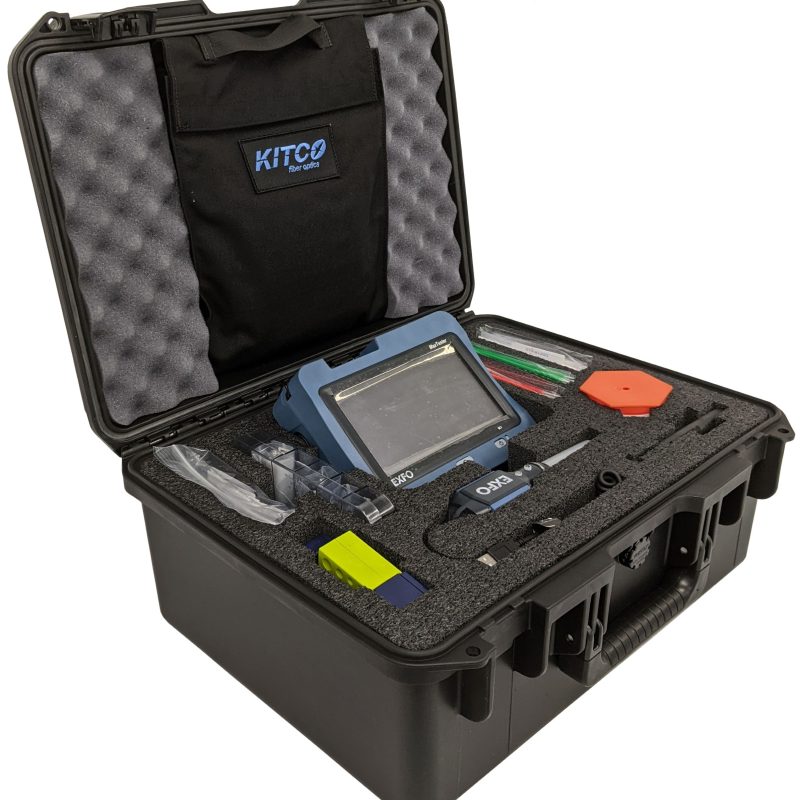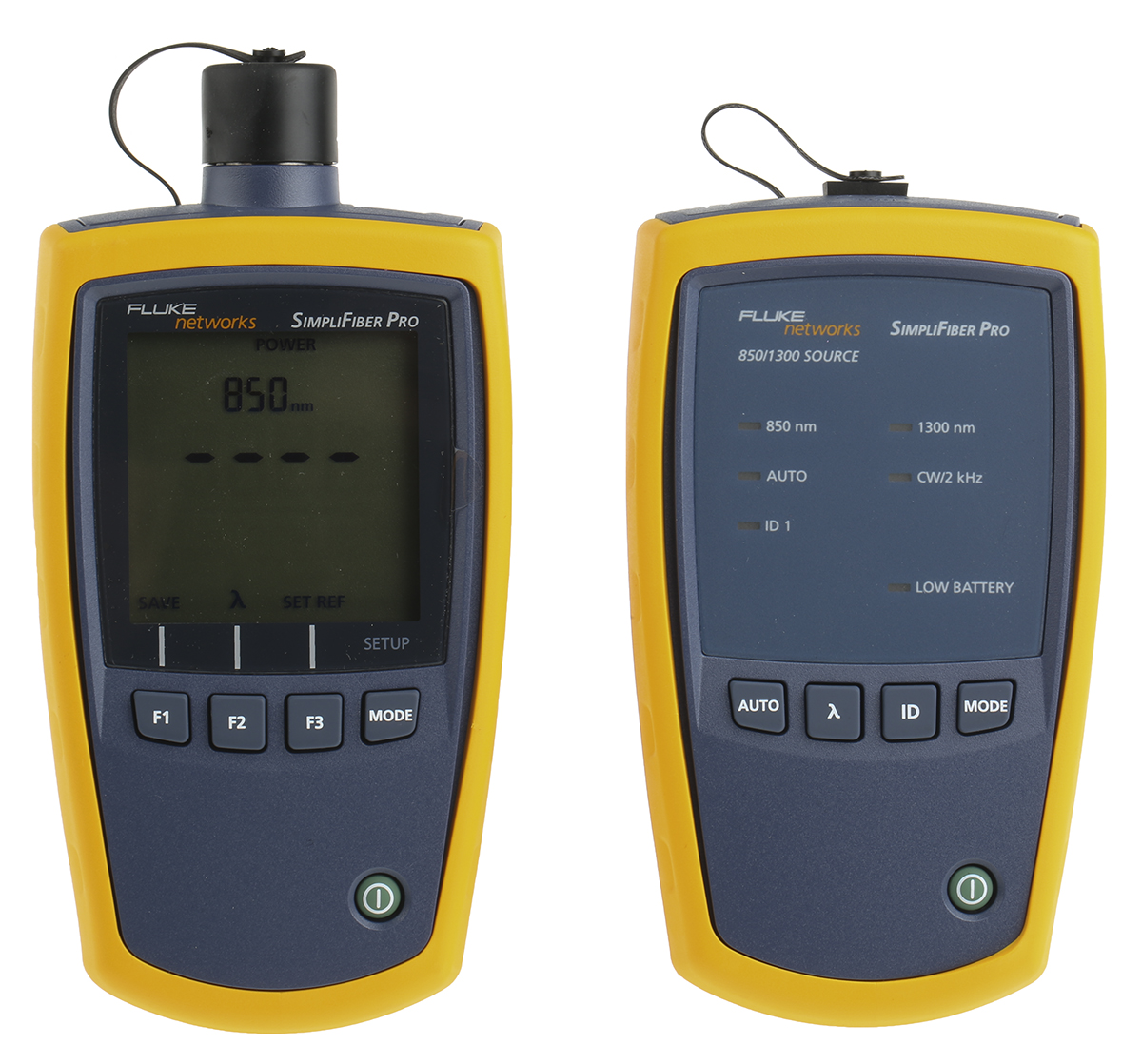Why is fibre testing equipment vital in food applications?
Why is fibre testing equipment vital in food applications?
Blog Article
A Comprehensive Overview to Optical Measurement System for Fiber Analysis
When it pertains to fiber evaluation, understanding optical measurement systems is essential for evaluating performance and guaranteeing high quality. You'll discover important methods like interferometry and spectroscopy, which aid you measure essential criteria. There's more to it than just these techniques; grasping depletion dimension strategies can significantly impact your network's effectiveness. As you browse with this overview, you'll reveal insights that could transform your approach to fiber optics.
Understanding Optical Measurement Solutions
When you check out optical dimension systems, you'll find they're crucial for analyzing fibers with accuracy. These systems make use of light to evaluate different attributes of fibers, including diameter, refractive index, and uniformity. By employing techniques like interferometry and spectroscopy, you can gain useful insights into the fiber's properties.You'll discover that these systems are developed to reduce errors and boost precision, ensuring dependable data for your evaluation. Various setups, such as single-mode and multi-mode systems, accommodate particular fiber types, enabling you to choose the best suitable for your needs.Moreover, the assimilation of sophisticated software devices aids you analyze the data effectively, making it much easier to determine any inconsistencies or issues. As you investigate much deeper into these measurement systems, you'll value how they streamline the logical process and improve the overall high quality of fiber production and screening.
Key Criteria for Fiber Analysis
Key criteria for fiber evaluation play a necessary role in establishing the high quality and efficiency of optical fibers. When you review a fiber, you'll desire to concentrate on attributes such as depletion, bandwidth, and modal diffusion. Depletion determines the loss of signal toughness as light travels with the fiber. A lower attenuation worth indicates far better quality and longer transmission distances - fiber measurement.Bandwidth refers to the data-carrying capability of the fiber and is vital for high-speed communication. You'll require to assess the data transfer to assure it meets your application needs. Modal dispersion, which develops from the various speeds at which light journeys with numerous settings in multimode fibers, affects signal clearness
Strategies for Attenuation Measurement

Data transfer and Its Effect On Efficiency
Understanding transmission capacity is vital for optimizing fiber efficiency, as it directly influences the amount of information that can be transferred over a network. Greater data transfer suggests you can send even more information at the same time, enabling faster interaction and far better general efficiency. When you're dealing with fiber optics, it's essential to think about how transmission capacity communicates with fiber features, such as core size and product properties.If the bandwidth is limited, you might experience data loss or slower speeds, affecting your applications. In addition, different kinds of fibers can sustain differing transmission capacity levels, so it is very important to choose the best fiber for your details needs.You should also maintain in mind that ecological aspects, like temperature level and external interference, can impact transmission capacity. By recognizing these aspects, you can make enlightened choices to enhance your fiber optic systems, guaranteeing trusted and efficient data transmission.
Refractive Index Measurement Methods

Overall Inner Representation
Total inner reflection (TIR) functions as a fundamental concept for determining the refractive index of fibers. When light trips from a denser medium to a much less dense one, it can just be completely reflected if the angle of incidence goes beyond a particular limit, understood as the critical angle. This sensation allows you to figure out the refractive index by evaluating the angles at which light shows or refracts. By utilizing a configuration that guides light into a fiber and gauges the resulting angles, you can calculate the refractive index properly. Understanding TIR not only boosts your fiber analysis yet likewise boosts the design and performance of optical systems. So, leveraging TIR can lead to much more effective fiber-based applications.
Interferometric Strategies
Structure on the principles of total inner reflection, interferometric techniques offer an effective ways for gauging the refractive index of fibers with high accuracy. These approaches manipulate the interference patterns produced when beams split and recombine after taking a trip various courses. You can make use of arrangements like the Michelson or Mach-Zehnder interferometer to analyze stage changes brought on by adjustments in refractive index. By meticulously adjusting your system and assessing the resulting edges, you can establish the refractive index with remarkable precision. It's crucial to maintain steady ecological conditions to decrease mistakes. With these methods, you'll enhance your understanding of fiber residential properties, leading to far better efficiency in different applications, from telecommunications to sensor technology.
Modal Diffusion and Its Value
Modal diffusion describes the dispersing of read review light pulses as they take a trip with a fiber, which can impact the total efficiency of the system. You'll see that this phenomenon can lead to signify distortion, affecting data transmission prices and top quality. Recognizing its relevance is vital for optimizing fiber optic layouts.
Meaning of Modal Diffusion
In fiber optics communications, modal diffusion plays a substantial role in determining signal top quality and transmission speed. It takes place when different light settings travel at differing speeds with the fiber. Given that each setting has distinct courses and features, they can get here at the getting end at various times. This time around distinction can result in signify spreading and distortion, which can degrade the overall efficiency of the communication system. You may encounter modal diffusion primarily in multimode fibers, where the several paths of light worsen the concern. Recognizing modal diffusion is necessary for optimizing fiber styles and ensuring that your communication systems run efficiently, keeping the stability of the transmitted signals over longer ranges.
Effects on Fiber Efficiency
Recognizing modal dispersion assists highlight its results on fiber performance. This phenomenon takes place when various modes of light travel at differing rates within the fiber, leading to indicate dispersing with time. As you evaluate fiber optics, you'll observe that raised modal dispersion can considerably weaken signal quality, resulting in decreased transmission capacity and longer transmission ranges. In functional terms, this suggests your data can arrive distorted or delayed, affecting total interaction performance. To mitigate these impacts, you could take into consideration using single-mode fibers, which minimize modal dispersion. By choosing the best fiber type and comprehending just how modal Clicking Here dispersion influences efficiency, you can boost transmission quality and guarantee dependable data transfer in your optical measurement systems.
Tools and Technologies for Optical Measurements
When it pertains to optical dimensions, a number of ingenious devices and innovations are at your disposal to enhance fiber analysis. You'll find fiber optic testers, which assess signal quality and performance, vital for preserving optimal my latest blog post network effectiveness. Optical time-domain reflectometers (OTDRs) are crucial for situating faults and measuring loss over ranges, offering in-depth insights into fiber integrity. In addition, spectrometers can analyze light spectra, aiding you recognize material buildings and composition.Don' t ignore the value of imaging systems, like digital microscopic lens, that allow you to visually inspect fiber surface areas for flaws. Also, consider making use of polarization analyzers to determine stress and stress in fibers, which is vital for understanding their actions under different problems. By leveraging these devices and technologies, you can substantially enhance your fiber evaluation procedures, making sure reliability and high performance in your optical networks.
Regularly Asked Concerns
What Are the Prices Connected With Optical Measurement Equipments?
The costs connected with optical measurement systems can differ significantly. You'll require to evaluate devices rates, maintenance charges, software program licenses, and prospective training expenditures. Budgeting thoroughly will aid you avoid unanticipated economic challenges down the line.

How Typically Should Fiber Analysis Be Carried Out?
You ought to do fiber analysis frequently, normally every 6 months or after considerable changes in the environment (fibre testing equipment). This guarantees perfect performance and aids recognize possible problems before they affect your system's effectiveness and dependability
Can Optical Measurement Systems Be Calibrated in the house?
Yes, you can adjust optical measurement systems at home, yet it calls for precision. Make particular you comply with the producer's guidelines, make use of suitable calibration standards, and ascertain your outcomes to guarantee precision in your dimensions.
What Industries Frequently Utilize Optical Measurement Systems?
You'll locate optical measurement systems extensively utilized in industries such as telecommunications, production, healthcare, and study. They're necessary for quality assurance, fiber evaluation, and making sure precise dimensions in various applications, boosting efficiency and precision throughout industries.
Exist Any Safety And Security Issues With Optical Measurement Equipments?
Yes, there are security interest in optical measurement systems. You need to constantly wear safety eyewear to protect your eyes from extreme lights and warranty proper training to manage tools safely and prevent accidents.
Report this page